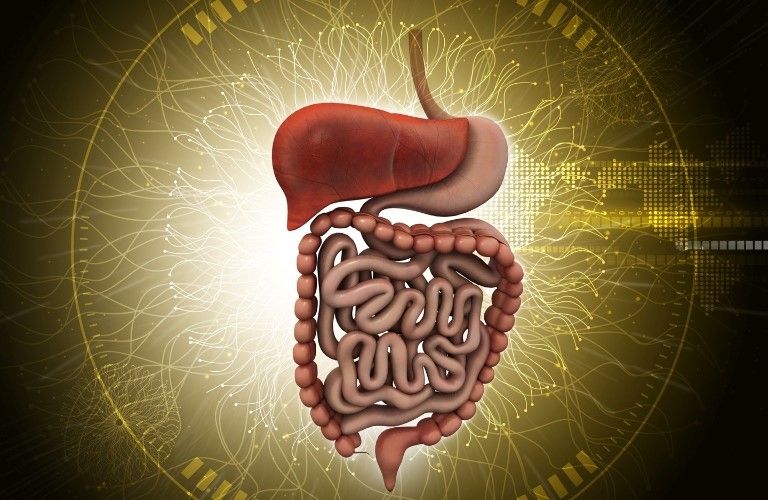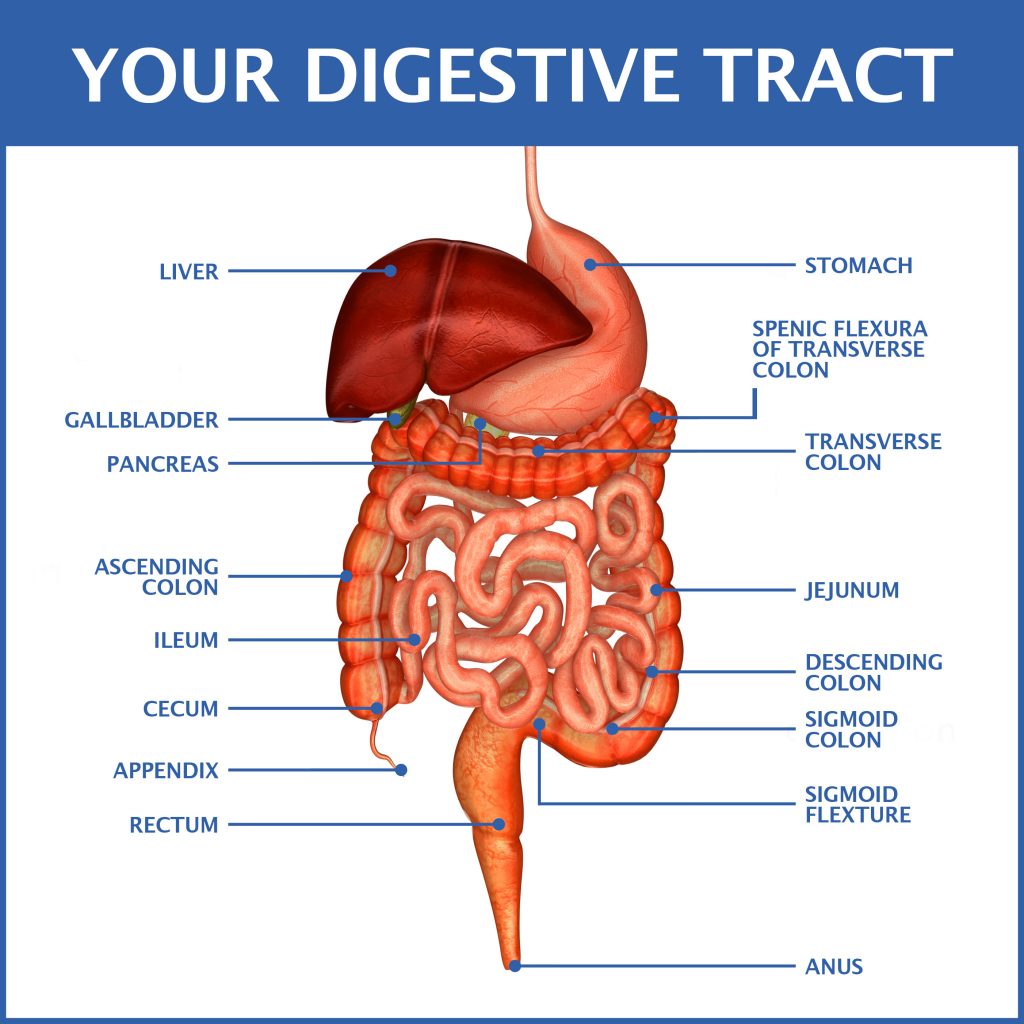How to Improve Digestion Naturally
Introduction

Digestive health is fundamental to overall well-being. The digestive system plays a crucial role in breaking down food, absorbing nutrients, and eliminating waste. When digestion is compromised, it can lead to various issues such as bloating, constipation, diarrhea, and indigestion. Fortunately, there are numerous natural strategies to improve digestion and maintain a healthy gut. This article explores dietary modifications, lifestyle changes, and holistic approaches to enhance digestive health naturally.
Understanding Digestion

Before exploring natural strategies to improve digestion, it’s essential to understand the digestive process and the factors that can affect it:
- Digestive Process: The digestive process involves the breakdown of food into nutrients that the body can absorb and use for energy, growth, and repair. It starts in the mouth and continues through the esophagus, stomach, small intestine, large intestine, and ends at the rectum.
- Factors Affecting Digestion: Poor dietary choices, lack of physical activity, stress, dehydration, and certain medications can negatively impact digestion. Additionally, underlying health conditions such as Irritable Bowel Syndrome (IBS), food intolerances, and inflammatory bowel diseases (IBD) can affect digestive health.
Natural Strategies for Improving Digestion
- Dietary Modifications: Making specific dietary changes can significantly improve digestive health. Here are some key strategies:
- Eat a Fiber-Rich Diet: Fiber is essential for healthy digestion. It adds bulk to the stool, making it easier to pass and preventing constipation. There are two types of fiber: soluble and insoluble. Soluble fiber, found in oats, apples, and beans, dissolves in water and helps regulate blood sugar levels. Insoluble fiber, found in whole grains, nuts, and vegetables, adds bulk to the stool and promotes regular bowel movements. Aim to include a variety of fiber-rich foods in your diet.
- Stay Hydrated: Water is crucial for digestion as it helps break down food and allows for the absorption of nutrients. It also softens the stool, making it easier to pass. Aim to drink at least 8 glasses of water a day, and increase your intake if you are physically active or live in a hot climate.
- Chew Your Food Thoroughly: Digestion starts in the mouth, where enzymes in saliva begin to break down food. Chewing food thoroughly ensures it is adequately mixed with saliva, making it easier to digest. Aim to chew each bite 20-30 times before swallowing.
- Include Probiotics and Prebiotics: Probiotics are beneficial bacteria that support gut health. They can be found in fermented foods such as yogurt, kefir, sauerkraut, and kimchi. Prebiotics are non-digestible fibers that feed these beneficial bacteria, promoting their growth. Foods rich in prebiotics include garlic, onions, bananas, and asparagus. Incorporating both probiotics and prebiotics into your diet can help maintain a healthy balance of gut bacteria.
- Avoid Processed Foods and Sugars: Processed foods and high sugar intake can disrupt the balance of gut bacteria, leading to digestive issues. These foods can also cause inflammation in the gut. Opt for whole, unprocessed foods and limit your intake of sugary snacks and beverages.
- Lifestyle Changes: Adopting healthy lifestyle habits can enhance digestive health. Consider the following:
- Regular Exercise: Physical activity promotes regular bowel movements and reduces the risk of constipation. Exercise also helps reduce stress, which can negatively impact digestion. Aim for at least 30 minutes of moderate exercise most days of the week. Activities such as walking, cycling, yoga, and swimming are excellent choices.
- Manage Stress: Stress can interfere with the digestive process and exacerbate symptoms of digestive disorders. Practice stress-reducing techniques such as mindfulness meditation, deep breathing exercises, and yoga. Regular relaxation practices can help calm the digestive system and improve overall gut health.
- Get Adequate Sleep: Sleep is crucial for the body’s overall health, including digestion. Poor sleep can disrupt the gut microbiome and lead to digestive issues. Aim for 7-9 hours of quality sleep each night. Establishing a consistent sleep schedule and creating a relaxing bedtime routine can improve sleep quality.
- Avoid Eating Late at Night: Eating large meals late at night can lead to indigestion and disrupt sleep. Try to finish your last meal at least 2-3 hours before bedtime. This allows your body enough time to digest the food properly before you sleep.
- Herbal Remedies: Several herbs have been traditionally used to support digestion. These can be incorporated into your diet or taken as supplements. Some of the most effective herbal remedies for digestive health include:
- Ginger: Ginger has anti-inflammatory properties and can help relieve nausea, bloating, and indigestion. It stimulates saliva, bile, and gastric juices, aiding the digestive process. You can consume ginger as a tea, in cooking, or as a supplement.
- Peppermint: Peppermint oil has been shown to relax the muscles of the gastrointestinal tract, reducing symptoms of IBS and indigestion. Peppermint tea is a soothing way to consume this herb.
- Chamomile: Chamomile has anti-inflammatory and antispasmodic properties that can help relax the digestive muscles and reduce symptoms of indigestion and gas. Chamomile tea is a popular way to use this herb.
- Fennel: Fennel seeds can help relieve bloating, gas, and cramps. They have antispasmodic properties that relax the muscles of the gastrointestinal tract. You can chew fennel seeds after meals or brew them into a tea.
- Holistic Therapies: Various holistic therapies can complement dietary and lifestyle changes to enhance digestive health:
- Acupuncture: Acupuncture involves inserting thin needles into specific points on the body to improve energy flow and promote healing. Some studies suggest that acupuncture can help relieve symptoms of digestive disorders, such as IBS.
- Massage Therapy: Abdominal massage can stimulate the digestive organs and promote bowel movements. It can also help relieve stress and reduce symptoms of constipation and bloating.
- Aromatherapy: Essential oils such as peppermint, ginger, and fennel can be used in aromatherapy to support digestion. Diffuse these oils or apply them topically (diluted with a carrier oil) to the abdomen to relieve digestive discomfort.
- Mindful Eating: Practicing mindful eating can improve digestion by encouraging you to pay attention to your body’s hunger and fullness cues. It involves eating slowly, savoring each bite, and avoiding distractions such as TV or smartphones during meals. Mindful eating can help prevent overeating and reduce symptoms of indigestion and bloating.
Improving digestion naturally involves a holistic approach that includes dietary modifications, lifestyle changes, herbal remedies, and holistic therapies. By incorporating these strategies into your daily routine, you can enhance your digestive health and overall well-being. It’s essential to remember that each person’s digestive system is unique, and what works for one person may not work for another. Therefore, a personalized approach, possibly in consultation with a healthcare provider, is often the most effective way to improve digestion. Prioritizing digestive health can lead to better nutrient absorption, increased energy levels, and improved quality of life.
